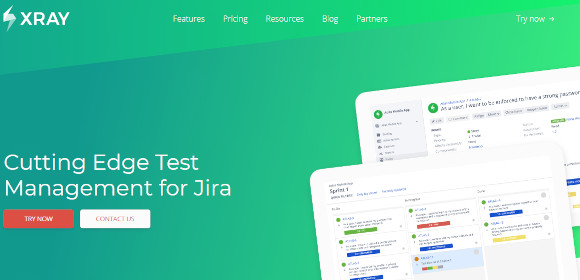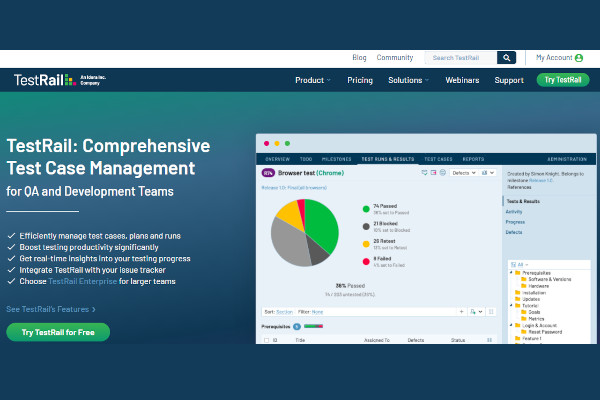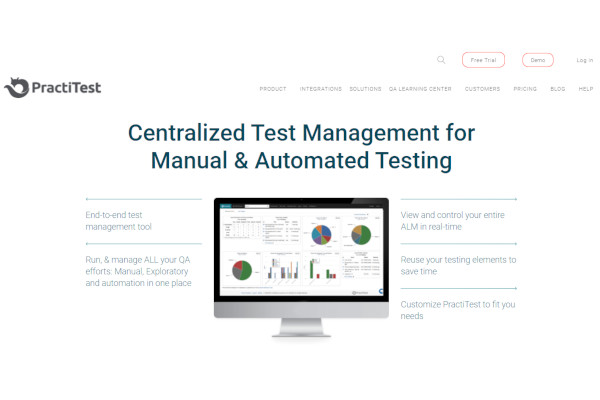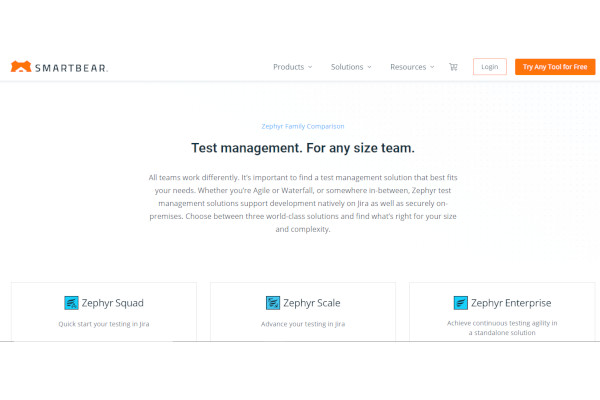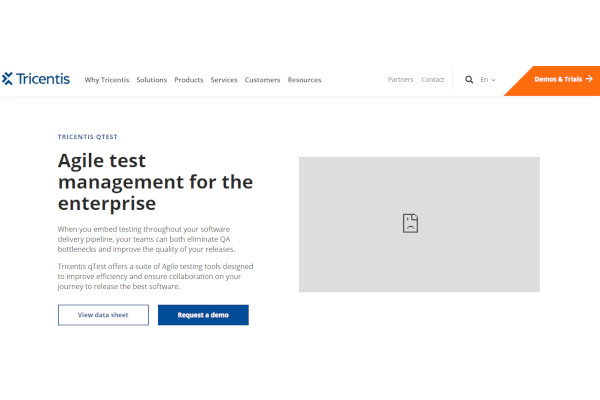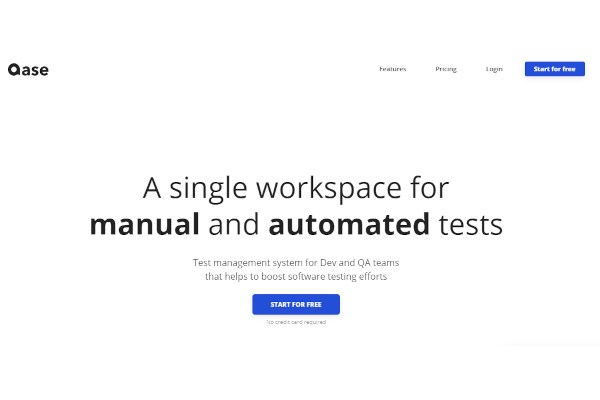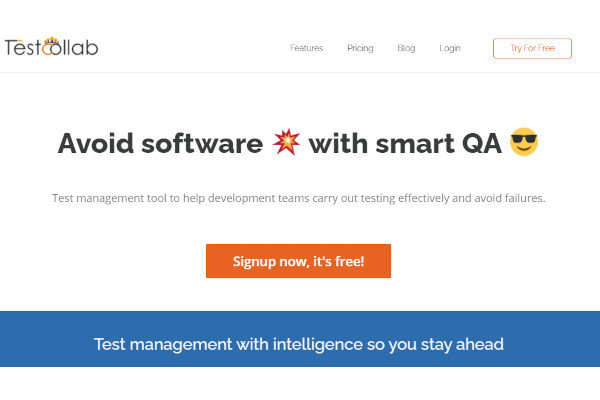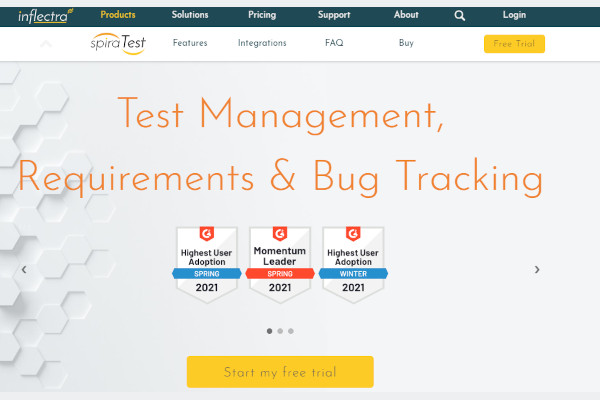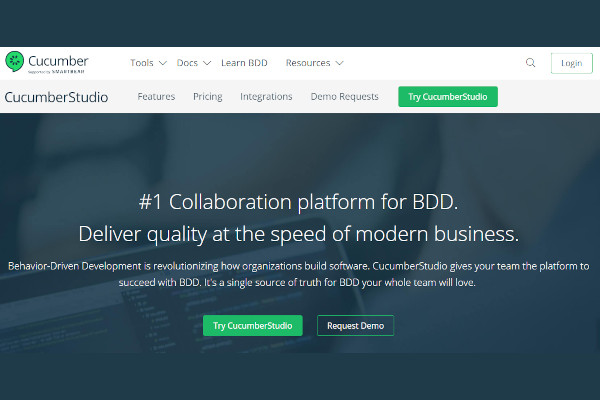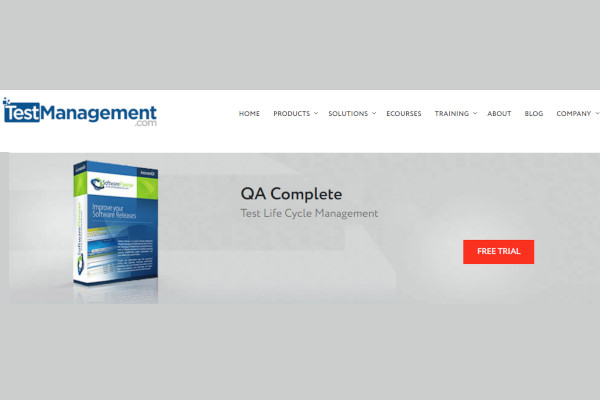Developing high-quality software and hardware solutions necessitates effective test management. Teams can ensure that they generate the most delicate products possible while making the most of their limited resources using well-planned and well-managed testing methods. The demand for intelligent test management procedures across all projects has resulted from managing more complex software products. As projects get more complicated and teams become more dispersed around the globe, a good test management approach becomes increasingly important.
12+ Test Management Software
1. TestRail
2. PractiTest
3. Panaya Change Intelligence
4. Zephyr
5. Tricentis qTest
6. Qase
7. Test Collab
8. Global App Testing
9. SpiraTest
10. CucumberStudio
11. QMetry Test Management
12. Xray
13. QAComplete
What Is a Test Management Software?
As software projects become more complex with the many different platforms that must be tested, it is more important to have a solid process for managing your testing activities. The process of handling tests is known as test management. Test management also includes using tools to manage both automated and manual tests that a test procedure has previously described. For example, the requirement test matrix, which indicates the functional coverage of the application under test, can be generated automatically using test management systems. In addition, multifunctional functions such as test ware management, test scheduling software, result logging, test tracking, incident management, and test reporting are standard in test management tools.
Benefits
Test management helps prioritize while also lowering the time teams spend on problems after the program is deployed by increasing efficiency and eliminating waste in the testing process. With this, here are a few benefits of test management:
- Organizing your tests by priority
- Increases the number of manual tests that are covered
- Collaboration is becoming more prevalent.
Features
As solutions get more feature-rich and additional endpoints are added to the equation, vetting software to verify that it is market-ready is becoming increasingly complex. As a result, more companies are turning to multifunctional test management products to make software testing more accessible. These tools may require some adjustment in terms of bells and whistles, depending on the delivery. Nonetheless, every good test management tool should provide developers with a few crucial capabilities. Here are five of the needed features your chosen software should have:
- More streamlined tracking capabilities
- Reporting in real-time
- Integration of automation
- Capabilities for collaboration
- Flexibility
Top 10 Test Management Software
1. TestRail
TestRail is a software solution that helps teams coordinate and track their software testing efforts. They have a $3 million revenue and 23 staff.
2. PractiTest
PractiTest is a professional test management platform that keeps all of your testing personal information in one place. They have a $3 million revenue and 19 staff.
3. Panaya Change Intelligence
Panaya delivers product lifecycle management and test automation solutions over the cloud. They have a $4 million revenue and 332 employees.
4. Zephyr
Zephyr is a testing solution built to keep up with continuous software delivery, and teams focused on delivering exceptional performance and quality. They have annual revenue of $18 million and employ 125 people.
5. Tricentis qTest
Tricentis is a testing platform established in Austria that offers enterprises application testing, data analytics, corporate performance analysis, and reporting solutions. They have a $100 million revenue and 700 employees.
6. Qase
Qase is a modern test management tool designed for QA and development teams. It features an easy-to-use interface and a robust feature set. They generate $4 million in revenue and employ 23 people.
7. TestCollab
TestCollab is a test management software application that enables agile teams to manage their testing more effectively. They generate $2 million in revenue and employ 12 people.
8. Global App Testing
Global App Testing connects mobile application developers with quality testers to identify critical bugs before the application’s release. They generate $24 million in revenue and employ 43 people.
9. SpiraTest
SpiraTest is a provider of software testing and project management tools. They generate $8.8 million in revenue and employ 87 people.
10. Cucumber Studio
Cucumber Studio enables any team member to read and refine executable specifications without the need for specialized tools. As a result, they generate $3 million in revenue and employ 19 people.
FAQs
What is a test case?
A test case is a collection of conditions or variables that a tester will use to determine whether a system meets requirements or operates correctly.
Is it necessary to test only after the build and execution phases have been completed?
After the build and execution phases, testing is always carried out. The earlier we detect a flaw, the less expensive it is.
What is the relationship between the reality of the environment and the test phases?
As the test phases progress, the importance of the environment becomes more apparent. For example, while unit testing requires a partially natural environment, acceptance testing requires a 100 percent real environment, or in other words, the actual genuine environment.
Test management is a critical aspect of creating a scalable and high-quality software solution. One may quickly produce a product with exceptional features, quality, functionality, reliability, browser security, and more with the help of a well-planned and well-managed testing procedure. As a result, test management is the most incredible option for ensuring the quality and efficacy of your testing process.
Related Posts
10+ Best Chemical Software for Windows, Mac, Android 2022
12+ Best Vulnerability Scanner Software for Windows, Mac, Android 2022
4+ Best Bundled Pay Management Software for Windows, Mac, Android 2022
10+ Best Trust Accounting Software for Windows, Mac, Android 2022
10+ Best Patient Portal Software for Windows, Mac, Android 2022
13+ Best Virtual Reality (VR) Software for Windows, Mac, Android 2022
12+ Best Bed and Breakfast Software for Windows, Mac, Android 2022
15+ Best Resort Management Software for Windows, Mac, Android 2022
14+ Best Hotel Channel Management Software for Windows, Mac, Android 2022
12+ Best Social Media Monitoring Software for Windows, Mac, Android 2022
10+ Best Transport Management Software for Windows, Mac, Android 2022
10+ Best Other Marketing Software for Windows, Mac, Android 2022
10+ Best Top Sales Enablement Software for Windows, Mac, Android 2022
8+ Best Industry Business Intelligence Software for Windows, Mac, Android 2022
10+ Best Insurance Agency Software for Windows, Mac, Android 2022
